Aussie expat reveals reality of living in Sweden during pandemic
Aussie expat Matthew Low reveals his frightening reality of living through the COVID-19 pandemic in Sweden – where there are almost no restrictions, despite more than 4400 deaths.
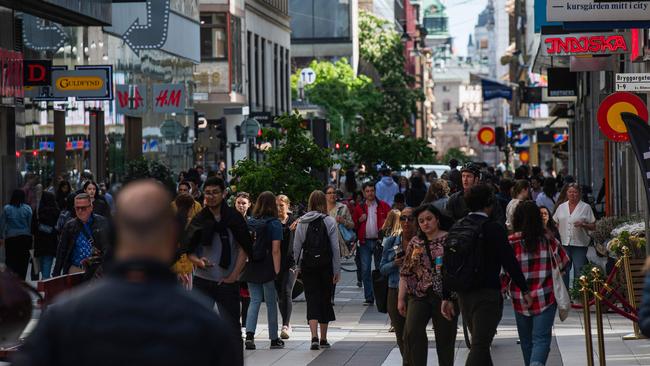
North
Don't miss out on the headlines from North. Followed categories will be added to My News.
AS Queensland continues to lift many restrictions designed to minimise the impacts of coronavirus, on the other side of the world Aussie expat Matthew Low reveals that in Sweden it’s largely up to individuals to interpret the government’s recommendations.
Gatherings of more than 50 people have been banned, but Mr Low said that otherwise the Swedish government was relying on voluntary measures, emphasising social distancing and good hygiene.
This is despite the country recording 12,225 new cases of coronavirus and 1748 deaths in the four weeks from May 4 to June 1.
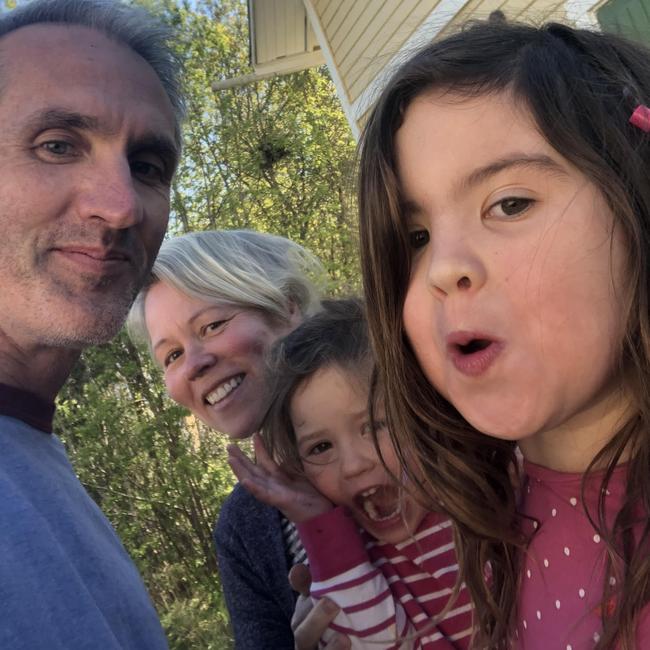
During the same period Australia (which has more than double the population) recorded 394 new cases and eight deaths.
The latest figures show Australia has had 7204 confirmed cases and 103 deaths while Sweden has recorded 37,814 cases and 4403 deaths.
MORE COVID-19 STORIES:
Premier dining and retail strip gutted by mass exodus
Live music venues in crisis as Retro Bar folds, Junk Bar for sale
Pools, libraries reopen as COVID-19 restrictions ease
While the Swedish approach has received both praise and condemnation in the media, Mr Low (who grew up in Chermside West in Brisbane’s north) is not a fan of the strategy.
The ecologist has lived in Sweden since 2007 with partner Asa and works at the Swedish University of Agricultural Sciences in Uppsala, 71km north of the capital Stockholm. They have two daughters – Lucy, 7, and Rosie 4.
Mr Low said it was largely up to individuals to interpret the government’s recommendations.
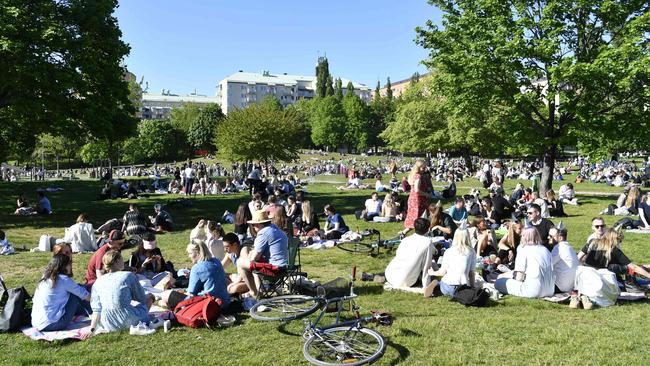
“I think most people are probably doing their best to abide by the recommendations,” he said.
“But you still see individuals – often groups of young people after school – going around the shops, not thinking about whether they invade other people’s expanded personal space, which is really annoying when you see them brush past elderly people.
“At the checkout it is not uncommon to have people ignore the taped markers on the floor.
“At the moment I think it is really difficult to encourage people to avoid busy outdoor public places when the sun comes out, because we are coming out of winter and people want to be out and enjoy the sunshine.
“But on the other hand people we know who had major things planned for the summer (birthdays, weddings etc) have cancelled them. So yes, large gatherings have generally stopped, but many small social interactions still go on.”

Mr Low said he and his wife were working from home and avoiding close social contact with friends as much as possible.
“We are lucky to live in a detached house with our own yard in a small village of about 2000 people.
“The interesting thing here is that although many people live in apartments in town, Sweden has the highest rate of people who live alone in Europe – roughly 50 per cent of dwellings have only a single occupant.
“So this is one of the reasons for the Swedish response and the justification that it won’t go as badly here as it has done in Italy and Spain.
MORE BRISBANE NORTH NEWS:
Revealed: Qld pub giants reopening this weekend
Could this be the oldest Macca’s team in the country?
Council ‘smart poles’ go online around Brisbane
“The argument goes that because we don’t have many multi-generational households like in southern Europe, the spread and severity won’t be so fast or so bad.
“But what is often overlooked is that where the really bad outbreaks have occurred in Sweden, they are concentrated in areas with old people who live together (eg nursing homes) and in immigrant areas where people live in apartments with multiple generations in the same household.
“So while the ‘Swedish approach’ might be okay for most working Swedes and their living situation, it disproportionately affects the elderly and the migrant communities.
“So in my opinion that doesn’t sit well with the idea that Sweden values equality for everyone.”
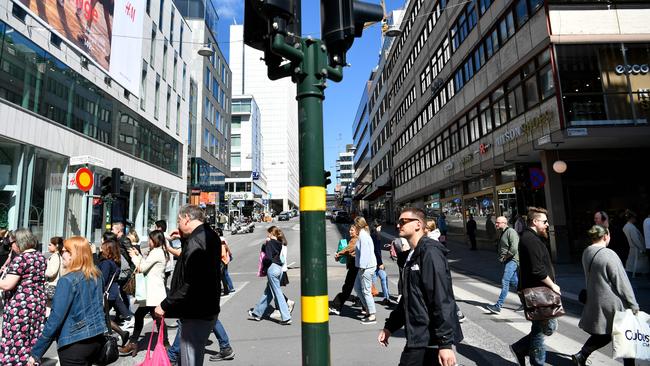
Mr Low said most people with COVID-19 symptoms don’t get tested.
“The official line is that if you have symptoms, stay home. You only come into the hospital if you need hospitalisation. So the number of people with corona is completely unknown because there is no proper population-wide testing.
“There are now lots of stories coming out of the aged care facilities where they have had massive losses of life for two reasons – they didn’t lock them down fast enough and so COVID-19 got in, and the official treatment policy is that unless you need a respirator, don’t come to the hospital.
“This means the hospitals aren’t overwhelmed, but it also means that people are being turned away, or not even being taken there when there is still time to treat them.”

Mr Low also said, while the recommendations were still in place, “people are becoming much more relaxed about the whole situation as if it is now over”.
“It isn’t. But after the initial shock it now feels like everyday stuff and so people are being less worried about it and being less careful, in my opinion.
“People here don’t feel the Swedish approach has failed because the sun is shining, the birds are singing, they can go to the pub and they aren’t living in aged care homes.
“If it doesn’t affect me directly, then it isn’t a problem seems to be the attitude.
“And it has to be remembered that Swedes have a real trust in their public institutions, so when the public health agency says ‘no, no, it’s still fine here’ they believe them and then get annoyed when the Danes and Norwegians lock the Swedes out of a Nordic travel bubble because we have far too many cases of COVID-19.
“They can’t do that to us, people here are saying. Well if you make your bed, you have to lie in it.”
Sweden’s neighbours Finland and Norway have both imposed restrictions on public gatherings, closed some workplaces and restricted travel. To date, Finland has reported 6859 cases of COVID-19 and 320 deaths, and Norway has had 8440 cases and 236 deaths.

Mr Low said it was becoming “increasingly difficult” for his family to isolate to the same extent they did a month ago.
“We keep getting invitations to kids’ parties. What can you do when you get pressure from your seven-year-old to go to her best friend’s birthday. Even we find we are starting to bend our rules.”
Mr Low said people were encouraged to wash their hands but he hadn’t seen any hand sanitising stations in public places.
He said Swedes initially had a laugh about Aussies “going nuts about toilet paper and then it started happening here”.
“First the toilet paper and hand sanitiser, and then yeast and flour, and pasta and rice. But after a few weeks of hoarding, it is all back on the shelves again – except yeast for some reason.”

Mr Low said the difference between the Australian and Swedish strategies “is largely about the timing of infection in the population”.
“Do you let everyone get exposed sooner and get it over with while trying to quickly build up ‘herd immunity’ (Sweden) or do you try and stop the spread with lockdown and then control its spread over a much longer time frame while waiting for an improvement in treatment in the meantime (Australia)?
“When they write a book about it in five years’ time we will know who was right and who was wrong, but at the moment Sweden’s approach doesn’t feel right to many people over here because it risks sacrificing people’s lives who would have otherwise survived (as new treatments are developed in the coming months) for the sake of maintaining lifestyle convenience.
“This approach has been justified over here (and by others who are claiming that Sweden is ‘leading’ the world in its response) by an appeal to the idea that the government shouldn’t tell us what to do but rather let us be responsible adults and make informed decisions.
“That sounds great and it feeds on nationalistic pride that we are somehow better, or more mature, than everyone else.
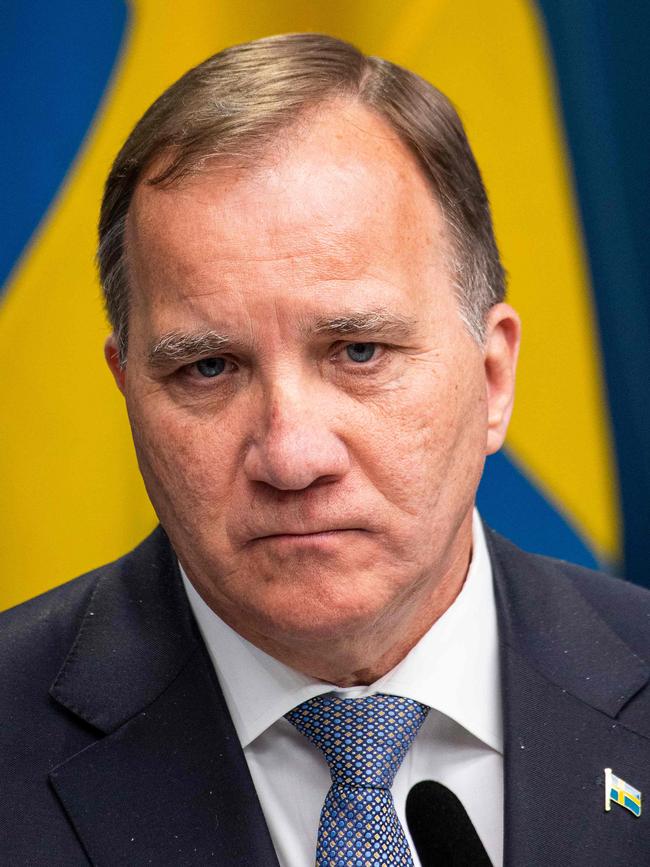
“But the reality is that while many people do the right thing, there are an awful lot of people out there who simply don’t believe COVID-19 is a serious problem or that they will get infected or that they are the spreaders to high risk groups.
“So every day here you see many people being careful, alongside those who just carry on as usual. And these people who aren’t taking it so seriously are actually risking everyone else by carrying on as usual.
“And it is so easy to feel like there isn’t anything really bad happening, because we don’t see it, and we don’t have to make any major lifestyle sacrifices.
“The feeling one gets with such an approach is that this is something that is largely happening to ‘other people’ in other countries.”
(Matthew Low is an ecologist researching climate change and population extinction risks in mammals and birds. He attended Aspley State School and Craigslea State High School in Brisbane’s north before studying at the University of Queensland.)


